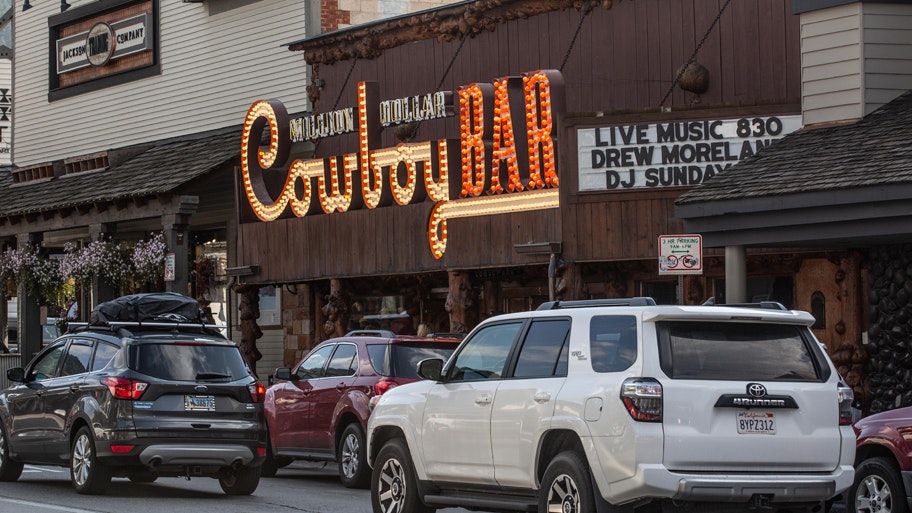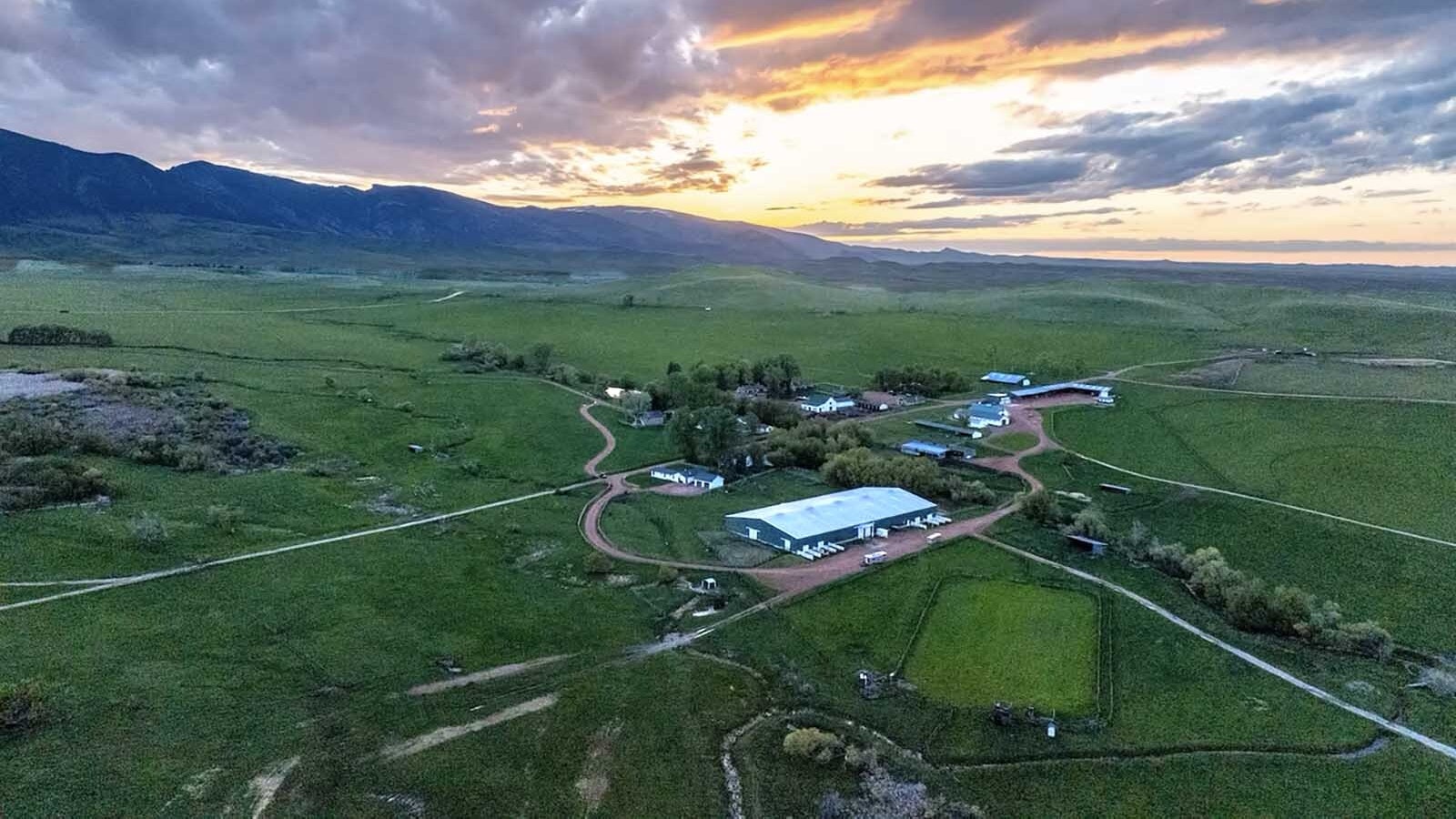Even the millionaires living in Teton County cannot compete with the current influx of wealth that's moving into a beloved tourist destination.
Income stats for Teton County show billionaires are moving out millionaires and middle class alike - at a pace that appears to be accelerating.
That's according to a detailed analysis by Jackson City Councilman Jonathan Schechter, who has become well-known for his detailed analyses of income tax data for his home community.
In the analysis, which was distributed via Schechter's Co Thrive newsletter, the Jackson councilman looks at the numbers that are defining this trend and their ripple effects, as well as taking a few educated guesses about what might be driving the trend.
In some ways, wealth moving into Jackson and the Cowboy State in general is not too surprising.
Wyoming has long been known for having some of the friendliest income tax and trust laws in the nation. On top of that, it offers so many places of unspoiled beauty and high-quality recreation.
But what Schechter believes has added more legs to the most recent influx of wealth to Teton County are technologies that let people cut ties to a particular place and tend to their business interests remotely.
While once upon a time, a vacation to the Tetons might last a week or two, these days, those with means can live where they love to vacation for as long as they want.
"If you look at where in-migrants are going, and you assume that they're moving to places where they want to go, these tend to be places where people feel good about themselves - places they go to recreate and vacation, or where they go to find their highest and best selves," Schechter told Cowboy State Daily.

Everywhere All At Once But Especially In Wyoming
Teton County's newest residents have a mean income of $661,000, while its out-migrants had a mean income of $100,181 - a 660 percent difference. This gap leads not just Wyoming, but the nation.
The trend is not just happening in Teton County - nor is it even just happening in Wyoming. The stats that Schechter has assembled show the trend is happening anywhere and everywhere in the United States where there is a highly desirable location.
That can be because of arts and culture, or because of things like ski mountains and beach resorts that attract hordes of tourists.
"I started with the major ski areas in the Northern Rockies, but then I added in the San Juan Islands in Washington and Martha's Vineyard and Cape Cod and Nantucket. I added in the Florida Keys, and then a couple of places down in Colorado," Schechter said.
"These are places for whatever reason or mix of reasons that people find desirable. And that's the significance of cutting that umbilical cord between where you work and where you live. Because once you can do that, you can go to where you want to be, whatever place fills your heart's desire," he said.
In-migrants Have Deeper Pockets Than Residents
In most cases, in-migrants make more than twice the income of out-migrant households, who themselves had an aggregate Adjusted Gross Income roughly 10 percent higher than the mean for U.S. households, according to the income tax data Schechter analyzed.
"This strongly suggests that while lifestyle communities' out-migrants are doing very well by national standards, they are getting crushed by lifestyle community standards," Schechter wrote in his report.
Teton County's out-migrants, meanwhile, are often landing in surrounding counties, Schechter's analysis suggests, which is in turn pushing lower income families out of their communities.
The next nearest community like Jackson in the U.S. is Pitkin Colorado, with an in-migrant mean income of $376,331, which Schechter said was a difference of 460 percent from existing residents' incomes.
Florida's Collier is third with an in-migrant mean of $320,502, followed by Blaine, Idaho with an in-migrant mean of $305,321.
Schechter identified similar trends for 12 name-brand communities that offer something highly desirable to quality of life, rather than simply being a large metropolitan area.

All Counties In Wyoming
In Wyoming, the top five counties where the in-migration of wealth is strongest, in order, are Jackson, Lincoln, Park, Sheridan and Sublette counties, with Goshen and Converse Counties not far behind.
Lincoln's in-migrant mean income is $148,508, with the other counties falling off gradually from there.
But all counties in Wyoming are showing at least some in-migration by those of higher means than existing residents, Schechter's analysis shows.
"Jackson is the gateway drug to Wyoming," he said, pointing out that while a vacationer or tourist of means may not be a billionaire who can afford the $26 million ski-in, ski-out Granite Ridge Chateau in Jackson Hole, that person can live in a surrounding county, or in some other region of the state that offers a bit of the Cowboy State's unspoiled beauty every day, while putting them within driving distance of those places they love best.
That makes the trend much more than just a Teton County phenomenon, Schechter said, and the numbers he's reviewed, plotted out on a bar graph in his analysis along with many other charts and graphs, bear that out. The trend is something many counties in the state have to wrestle with.
"We need help," Schechter said. "These other counties need help with where the state is heading, to be creatively out ahead of that curve."
Property Taxes A Symptom
One of the ripple effects of the in-migration of wealth has been a leap in property tax rates. As the demand by billionaires pushes up the purchase prices of homes, that drives property tax rates up and pushes people out of one market and into a more affordable one.
It's a trend Schechter himself has experienced, up close and personal.
"My house, the property taxes went up 45 percent last year," Schecter said. "I can tell you what didn't go up 45 percent last year, and that was my income."
Schechter knows there are people in Teton County who had to sell their homes because they cannot afford their property taxes.
"I hope it doesn't happen to me," he said. "But if home prices keep going up, then property taxes are going to keep going up. If that happens, I'm gonna have to figure out a way to have my income go up as fast, or else, I'm going to be forced to sell it because I will no longer be able to afford my property taxes."
Band-Aids Not What State Needs
While Wyoming lawmakers offered no less than 21 bills involving property tax relief in the recently concluded legislative session, all but two bills and one study bill died.
Lawmakers approved an expansion of an existing property tax refund program based on income levels, adding a circuit breaker to it so that retirees who saved money for retirement would still qualify.
And they approved a measure asking voters whether to create a property tax category just for residential properties, so that it can be taxed differently than commercial and agricultural properties.
The study bill, meanwhile, looks at whether a system based on purchase price, rather than fair market values, would work better for Wyoming's residential properties. That approach would be similar to that taken for taxing cars.
Schechter sees these as treating a symptom, rather than the root cause of the wound.
"A lot of the bills that were introduced were sort of putting band aids on a problem that nobody had really deeply diagnosed," Schechter said. "What's happening, basically is, technology is freeing people to live where they want to live."
The ripple effects of that are not just happening in Teton County, but in many counties across the Cowboy State, and it's a situation Schechter believes will only accelerate, as technology makes it easier and easier for those of means to simply choose to live wherever they want, regardless of where "work" might be.
Wyoming Has A New "Coal"
While the trend presents a significant challenge for the Cowboy State, one Schechter believes will take cooperation to solve, he also sees within the challenge a significant opportunity.
Wyoming's revenues have been highly dependent on hydrocarbons like oil and gas and coal, which are up and down with the market - a fact that many a lawmaker or public official has lamented in the past, whenever there's a downturn.
That's prompted frequent cries to diversify the economy, so that revenues are less dependent on commodities that come and go when the market pleases.
Schechter thinks the unspoiled beauty of the state, which is attracting wealth like iron to a magnet, should be treated like the state's new "coal."
Monetizing the trend would help provide revenue sources for affordable housing for workers, as well as support the kind of infrastructure that the well-heeled are accustomed to.
"We had roughly $9 billion worth of real estate sales in Teton County in 2020 and 2021," Schechter said. "During that same time, we only had about 4.5 billion dollars of sales taxes, taxable sales. So, we were charging 6 percent on that 4.5 billion of stuff - it was even less than 4 billion. But then we had $9 billion worth of real estate or 8 billion or whatever it was, and we didn't make a penny off that."
Schechter said he hasn't really formulated any ideas yet for how that might be done - and he welcomes feedback from others in the state on his analysis - but it's something he believes requires a comprehensive and thoughtful approach.
"Four years in office have made it clear to me that the forces sweeping over Jackson Hole, the Tetons region, and similar lifestyle areas are so powerful - the money is so large, and is moving with such velocity and strength - that local government can't adequately address them," he said in his report.
Graphs, courtesy Jonathan Schechter
Renee Jean can be reached at: Renee@CowboyStateDaily.com





